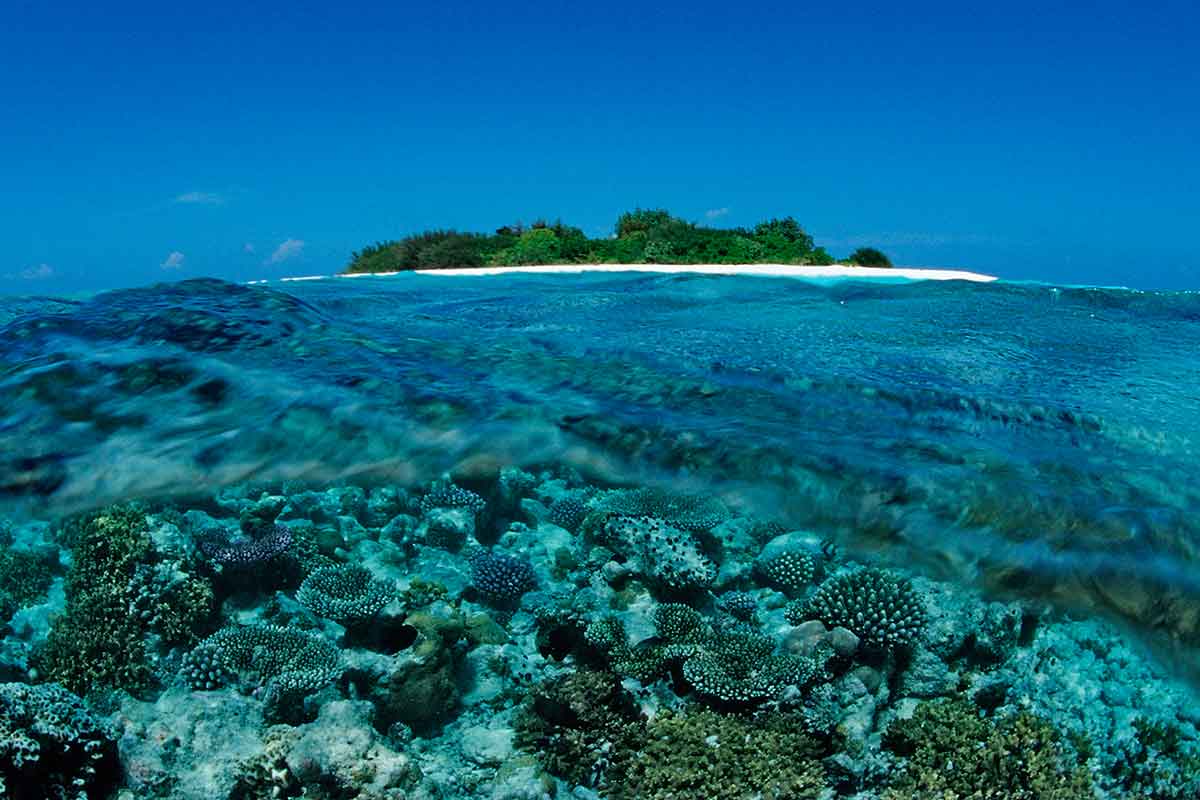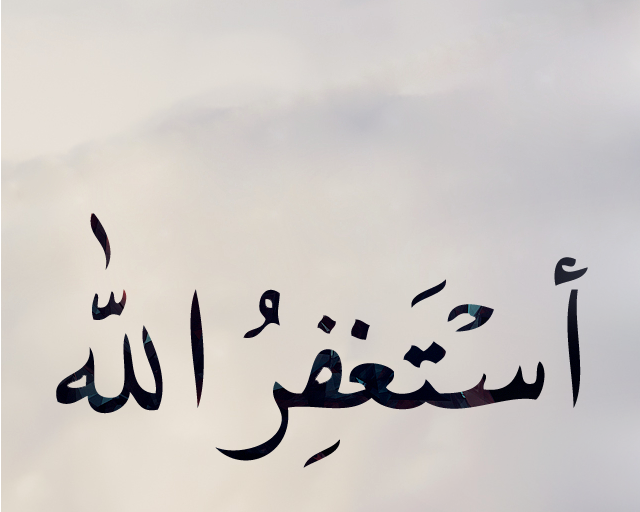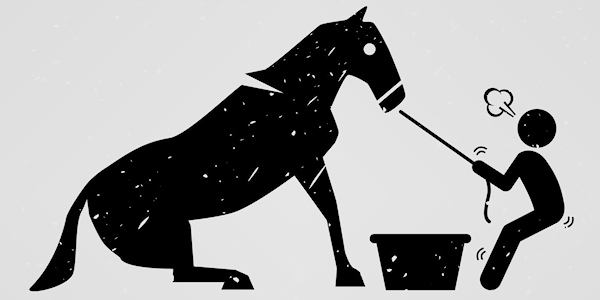Maldives’ coral reefs: latest victims of political power play

by Ibrahim Mohamed
The Maldives is a coral reef system, one-fifth the size of the Great Barrier Reef and is hailed as the 7th largest coral reef system on the Earth and is the largest atoll reef system. The reefs act as both the economical and structural backbone of the entire nation highly vulnerable to climate change impacts. The two major economic activities, fisheries and tourism are heavily dependent on the healthy reefs, while making the islands resilient against major natural disasters such as storm surges. Though climate change is a slow process, reefs are the most important resilient feature for the adaptive capacity of islands.
However, warming episodes due to global climate change have been causing mass coral bleaching in the Maldives. Consequently, the Maldives advocates strongly on behalf of vulnerable small island nations and is currently the chair of the Alliance of Small Island States (AOSIS). In a recent Op-Ed in The Huffington Post, the Environment Minster of the Maldives, Mr. Thoriq Ibrahim, raises concerns of bleaching and mentions:
“On a local level, we must continue to mitigate the effect of human activity of these delicate ecosystems. Our government is increasing protection of affected areas and the scope. Environmental Impact Assessments (EIAs) will be markedly expanded in light of this recent bleaching event. That means stringent EIAs on new hotel developments and limiting terrestrial runoff and agricultural pollutants – proven enemies of coral reefs”.
However, news of blasting of a reef using dynamites, has loomed large in local media lately. Both former Environment Minsters Mohamed Aslam and Maryam Shakeela raised alarms about this destructive process. Aslam questioned the controversial decision of the Government:
I was just told Env [Environment] min [Ministry] have given permit for blasting reefs after 10 yrs of not permitting this destructive practice. Where are we heading?
Shakeela urges to appeal to concerned authorities to reverse this decision:
Y [why] not 1st appeal 2 [to] authorities yet again 2 [to] explain the consequences nd [and] suggest alternatives. Development can occur without harming env [environment].
History of reef blasting in the Maldives
In 1986, cracks in the North East Reef of Male’ were observed by local environmentalists, Mohamed Zahir and Husain Manik, who believed they may have been caused by reef blasting. Later on the 14th of November 1990, the Southern Reef of Male’ was blasted using dynamite resulting in shockwaves and severe damages to several buildings. Local diver and environmentalist Husain Manik informed President Maumoon Abdul Gayoom of severe damages to the Reef with photographic evidence, which led to strict polices on blasting of reefs.
According to The 2007 Audit Report of the Ministry of Construction and Public Infrastructure, the Ministry blasted a reef in the island of Vandhoo in Thaa Atoll without proper studies and the resulting damage caused a huge financial loss to the Government. To compensate for the damages, the Ministry paid MVR 1.7 million (about USD 100K) to islanders of Vandhoo and MVR 300K (about USD 20K) to neighboring island Hirilandhoo. Since then the Government has banned reef blasting. The Government has not conducted any assessments on the reef of Vandhoo Island and hence the damages to the reef has never been valued.
The Meedhoo Ismehela Hera Channel in Addu City
In 2011, to obtain sand for Herethere Resort, a proposal to dredge a channel between Meedhoo and Ismalehera Islands, was developed. A 2011 Environmental Impact Assessment (EIA) justifies the need for this channel, which was followed by the Addendum of 2016. The 2011 EIA envisages two main benefits as below:
(1) To provide easy access between Addu and Fuvahmulah Cities via ferries
However, the Fuvahmulah Airport was constructed and began operation in 2012, which along with Gan International Airport based in Addu City became the major popular transportation mode for locals. The EIA hence underestimated the implications of air transportation’s dominance over ferries, and therefore need for the channel was not justified. There was no mention of development plans for the Addu City Seaport and International Airport and how this project may become obsolete in future with these major developments.
(2) To decrease the cost of fuel for fishermen of Meedhoo Island
Although EIA 2011 and 2016 Addendum emphasizes fuel saving, no cost benefit analysis was provided. Also, the benefits including employment for small-scale fishers in Meedhoo, was mentioned but the impact of irreversible damage to the Reef and its marine life was not considered. Additionally, for tuna fisheries, baitfish is required and has to be obtained from the intra-atoll basin rather than by going out to open sea through this channel. Hence the benefits mentioned for fishermen in the EIA are not justifiable for this project.
2016 EIA Addendum
In 2012 the project was initiated and after using a one-ton air gun for almost two and half years of dredging the Channel, the project contractor realized it is impossible to break the beach rock formation underneath the Reef. One major reason was the Reef has become hard and stable over thousands of years. Hence, in 2016 an Addendum was submitted to determine the impacts of blasting the Reef using dynamite or any other suitable explosives. Given the complexity and uncertainty of impacts from such an explosion, the EIA review has shown that the blasting of reef does not comply with (a) The 1992 Rio Declaration signed by the Maldives, and (b) The Article 22 of the Constitution of the Maldives. Hence the initial EIA review has determined blasting the reef using dynamite should not be allowed and the project should seek other alternatives. However, the Housing Ministry appealed to the Environmental Protection Agency (EPA) of the Maldives regarding the decision. After deliberation the EPA has permitted the project despite the irreversible damage that could be caused, and against the EIA reviewers initial recommendations. The EPA has issued a statement saying that the Ministry of Housing should be responsible for any damages from the blasting and acknowledged the inevitable irreversible damages of using explosives.
The project as a key vote swinger
The Government candidate for local council election from the Island of Meedhoo has been a strong supporter of this project. This project also has been used as an electoral incentive in the past. The local business elites, who control a large number of votes, are the main beneficiaries of this project. For instance, in 2013 election the incumbent President Mohamed Waheed was able to gain majority vote from Meedhoo by expediting this project through his Government. The project was then stopped due to a lack of finance. Later, during the parliamentary election, Qasim Ibrahim promised to finance it. The project contractor left in 2016 due to financial losses incurred and the project was stopped – until now. The upcoming local council elections has now become a major reason to continue the project as a means to gain vote for the Government candidate.
The questionable way this project has been prompted at a time of an election is highly controversial. In addition, the way the project was given a green light, shows the hypocrisy of the current Government in dealing with environment and climate change at the heart of the Maldives. The Environment Minister of Maldives, Thoriq Ibrahim, currently attending Conference of the Parties of UNFCCC (COP) 22 in Morocco, is asking for finance for adaptation. Back at home, he has allowed the destruction of a reef, the most important adaptive feature of an island. As opposed to his pledge to international community in June this year on strengthening EIA process in the country to reduce damage to coral reefs due to human activity he has allowed to blast an important reef of an island already faced with severe erosion.
Just a few kilometers north of this destruction there is a European Union (EU) and Australian Government jointly funded Climate Change Adaptation project. This project, located in the Hithadhoo Koattey and Edhigali Kilhi Protected Area, is funding various activities worth millions of dollars aimed at protection and sustainable use of the coastal marine environemnt. In the meantime, the Hithadhoo Koattey Area Reef, which was resistant to 1998 bleaching, has been reported to have recently shown traces of bleaching.
The Government of the Maldives has an obligation both under local environmental laws and international commitments to stop this destruction. The moratorium on prohibiting blasting of reefs should be enforced in the country already with weakened environmental monitoring and enforcement. Instead of pleading to international community and condemning their inaction on global climate change the country should ensure they do not destroy their critical natural resilience against climate change.
The blasting of this Reef will be an intergenerational theft that can never be repaid.
About the author:
Ibrahim Mohamed is a Ph.D. candidate at James Cook University, Australia. His research is on the adaptive capacity of islands of the Maldives to climate change. Prior to his Ph.D. scholarship from the Department of Foreign Affairs and Trade of Australia under Australia Awards, he was working in the Maldives Environmental Protection Agency as the Deputy Director General. He has also worked for the Maldives Climate Change Trust Fund managed projects related to adaptation and mitigation.
Photo: New Scientist

